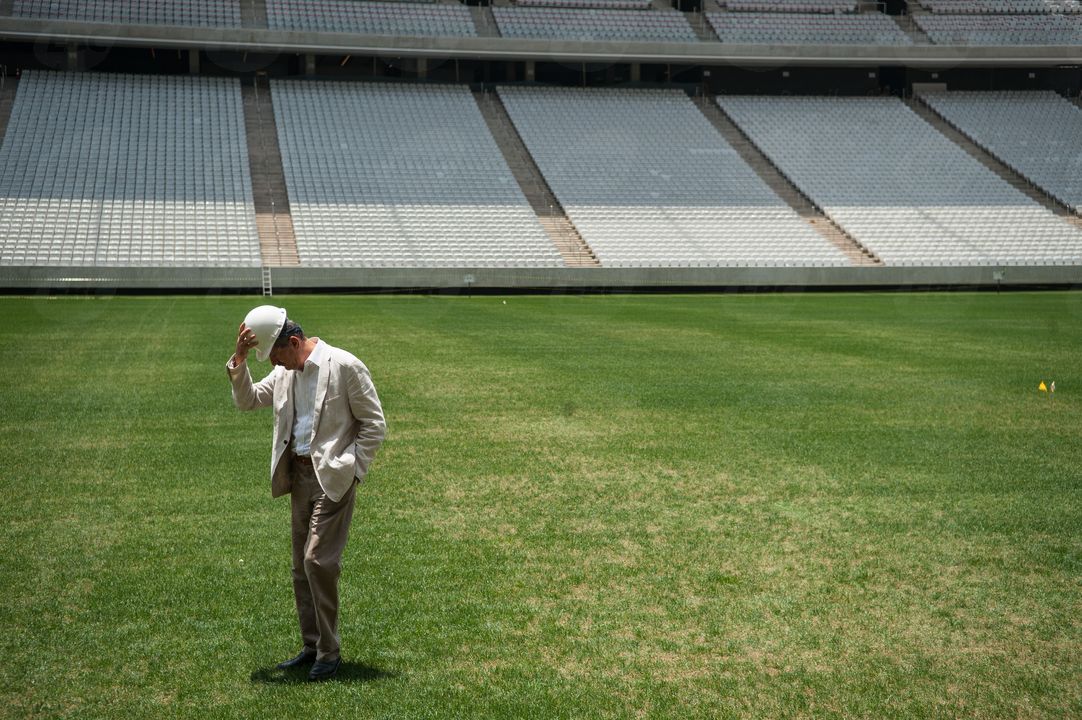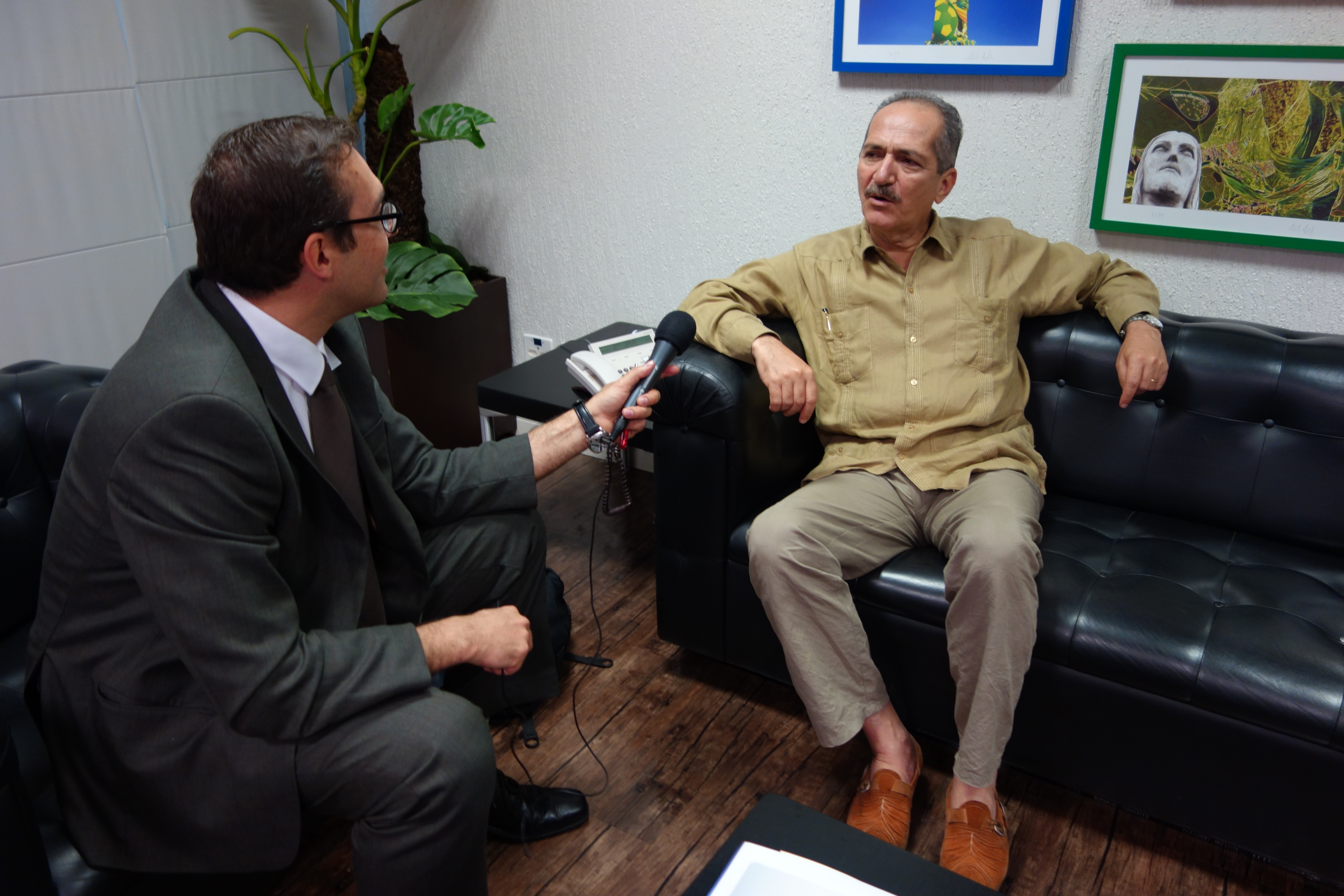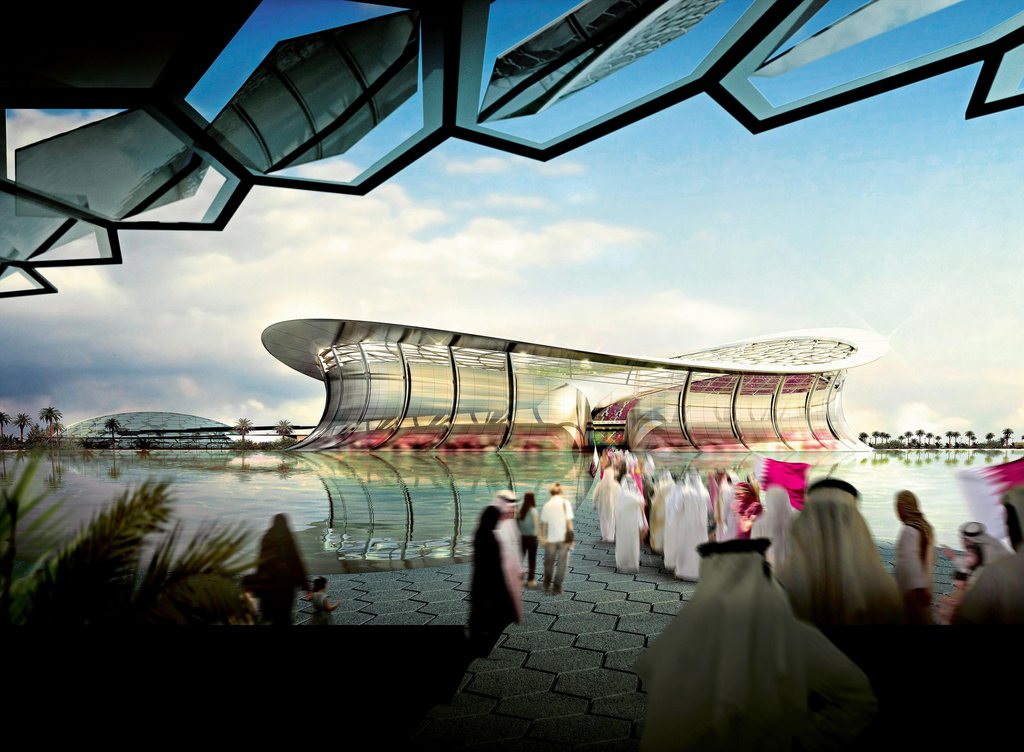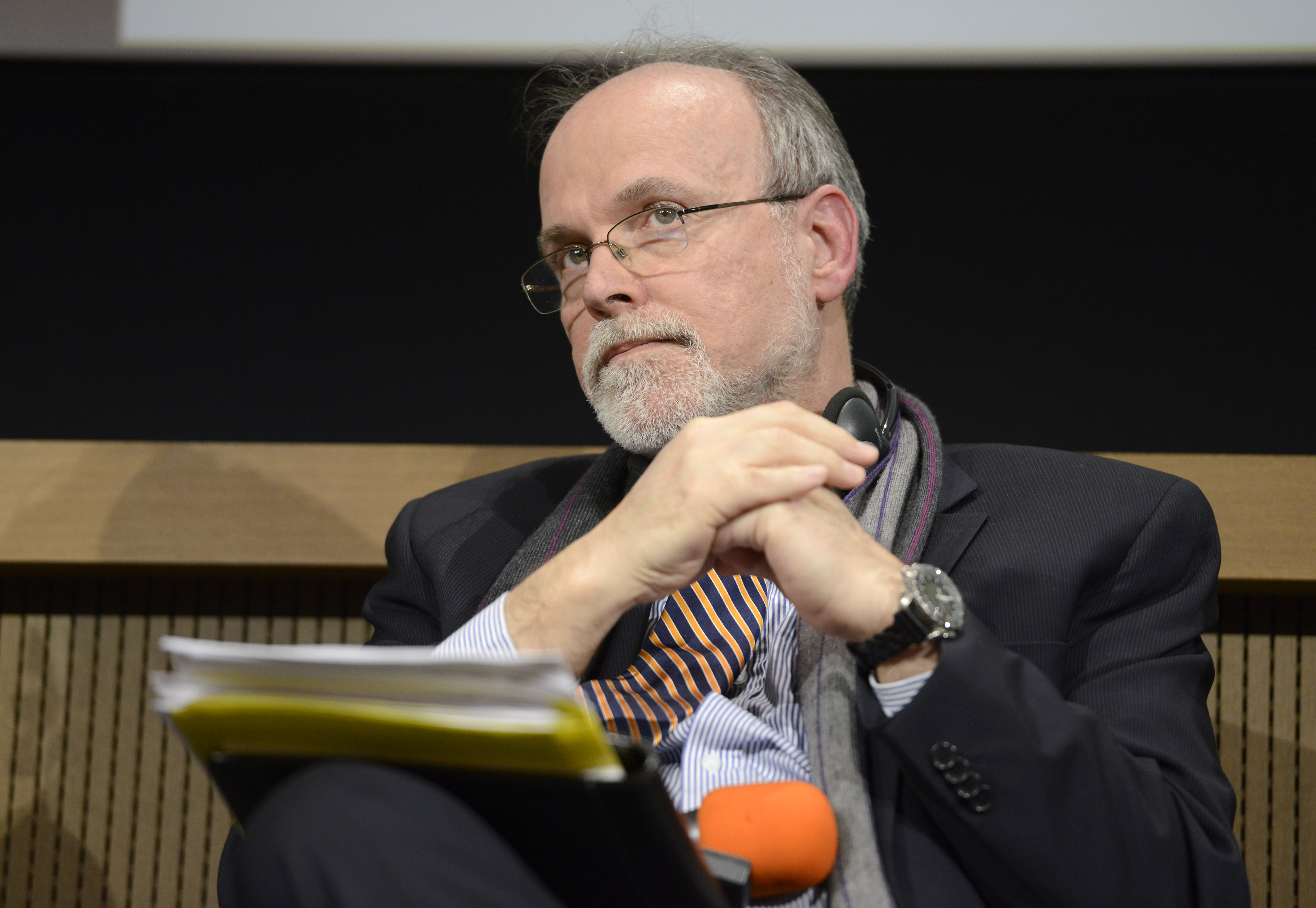‘The World Cup is not the cause of global inequality’

As social unrest and unfinished infrastructure continue to make headlines ahead of the 2014 football World Cup in Brazil, the country’s sports minister Aldo Rebelo tells swissinfo.ch why they decided to build 12 new stadiums – four more than usual.
The 58-year-old member of the Communist Party of Brazil is friendly and informal – he is wearing a guayabera, a traditional linen shirt, and a pair of leather sandals without socks. The month-long tournament kicks off on June 12.
swissinfo.ch: FIFA, world football’s Zurich-based governing body, says eight new stadiums are enough. Had you followed this advice, many things would have been a lot easier, for example the logistics for the spectators. Why did you want to build 12 stadiums?
Aldo Rebelo: The reason is that Brazil is a massive country of 8.5 million square kilometres. The border is 16,000 kilometres, we have ten neighbouring countries and wide geographic differences between the regions.
We couldn’t organise the World Cup just in one part of the country. If we were Germany, France or Switzerland, four stadiums would have been enough. We could have built all of these in São Paolo.
But we decided differently. We couldn’t ignore two-thirds of our country, say the Amazon area. That’s why there will be matches in Manaus [where Switzerland will play Honduras on June 25]. This city is unique. It represents a state with a surface area of 1.6 million square kilometres, of which 98% is forest – that’s three times the size of France.
Equally unique is the Pantanal wetlands in the state of Mato Grosso. The capital city Cuiabá has a 300-year history – how could we leave this region out of the World Cup?
In Brazil we have internal borders to the hinterland regions. For precisely this reason we wanted the entire country to be represented by venues and not only the centre-south, southeast and the coasts.
José Aldo Rebelo Figueiredo was born in Viçosa, eastern Brazil, in 1956.
He was a student leader and in 1977 entered the Communist Party of Brazil. He worked as a journalist.
In 1988, he was elected to parliament. Between 2005 and 2007 he was was President of the Chamber of Deputies.
On October 27, 2011 he was appointed sports minister.
swissinfo.ch: How do you explain FIFA’s terrible image in Brazil?
A.R.: FIFA has not been completely rejected by us. But it’s true that a few media have judged FIFA harshly. But that also happens in England.
Our relations are of an institutional nature. We recognise FIFA as the organiser. We were not gifted the World Cup – we had to fight hard and beat off competitors. But we eventually won the right to stage this World Cup.
swissinfo.ch: Talking to fans in the street, one hears of problems like vendors who can’t sell acarajé [deep-fried black-eyed peas] in front of the stadiums. Street traders are being driven away.
A.R.: We’ve reached a good solution with the acarajé sellers’ association. Companies or brands who are not official World Cup sponsors are not allowed to sell their goods inside stadiums or designated zones – but they are allowed to advertise. In this respect the regulations of the Internal Olympic Committee are a lot stricter, because they include for example advertising space in airports [Brazil is hosting the 2016 Olympic Games].
In the case of a problem we try to solve it for the common good. That goes not only for acarajés, which are part of the local identity in Bahia in the northeast of the country. A party in Bahia without acarajés is unthinkable.

swissinfo.ch: When they visited Brazil with Economics Minister Johann Schneider-Ammann earlier this year, many Swiss business leaders asked their Brazilian partners whether there would be protests during the tournament. What do you think?
A.R.: There will be a few demonstrations but no large protests. I’m sure of that. The fact is, you have to live with protests.
Before the London Olympics [in 2012] violence exploded in a few suburbs. There were violent protests. Also the suburbs of Paris saw youth revolts with acts of violence and fires. Violent protests broke out in a Chinese province before the Beijing Olympics [in 2008].
These demonstrations [in Brazil] are the expression of social unrest and discontent. They are not the result of the sporting event. The football World Cup is not the cause of the current inequality in the world. But it goes without saying that since we’re dealing with an event of global dimensions, social restlessness manifests itself and debates take place.
swissinfo.ch: One gets the impression that football in Brazil is going through a decadent phase: the stadiums are empty, the championship a mess, talented young players are moving abroad. How do you see it?
A.R.: Brazil still has excellent athletes, but it’s a fact that football as a structured sporting discipline is experiencing a certain decline. In the 1960s our clubs were known as a brand around the world. FC Santos in São Paolo stood for Pelé and other great players; Botafogo from Rio de Janeiro had Garrincha, Milto, Santos, Zagalo…
But that’s in the past. Today it’s the European clubs who are ahead. And stars, who previously played in Brazil, Argentina or Uruguay, are now in Europe.
So, as I’ve said, you can talk of a certain decline. But it’s by no means just a Brazilian problem, but a global problem. I’ve drawn FIFA’s attention to the fact that premature transfers of young players are harmful.
Surely FIFA can’t believe that football should be filled with prestige only in Europe. Prestige arose, after all, from the rivalry between the South American and European schools of football.
If South American football is deprived of its substance, it’s not only a loss for us but for sport around the world. Football has been on the brink of a risk zone ever since it became the target of greed of large companies. Think of the sponsoring and television rights.
But if football loses its magic and is only of commercial interest, it won’t have a future. Football was not invented as a product. It was created as an institution in the 20th century – outside the markets and states.

In compliance with the JTI standards
More: SWI swissinfo.ch certified by the Journalism Trust Initiative












You can find an overview of ongoing debates with our journalists here . Please join us!
If you want to start a conversation about a topic raised in this article or want to report factual errors, email us at english@swissinfo.ch.